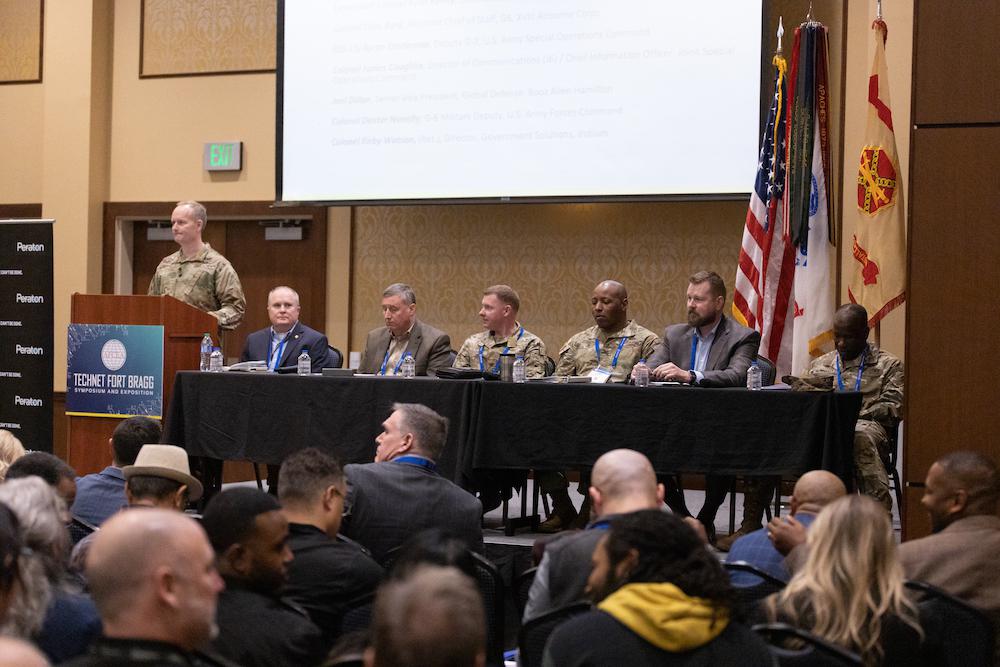AI/ML, More Than Buzzword Bingo
Artificial intelligence (AI) is only as good as you train it to be, according to Joel Dillon, senior vice president of global defense at Booz Allen Hamilton.
“Honestly, for intelligence, it’s pretty dumb if it’s not trained the right way,” he said during Thursday's Senior Leadership Panel at TechNet Fort Bragg 2023 Symposium and Exposition. AI, like most other capabilities, can only be successful with the right algorithms—which, in most cases, can be easily fooled. “You have to be able to rapidly push relevant data backup for training to train a new algorithm,” Dillon stated.
The vice president’s comment was a follow-up to a statement on collecting data instead of thoroughly processing it from Col. James “Gumbo” Coughlin, USAF, director of communications, J6, and chief information officer at Joint Special Operations Command. “And every time I hear somebody play buzzword bingo and say, ‘I’m gonna sprinkle some AI/ML on that and solve it without data scientists and all the kind of neurotrophic computing smart human staff that needs to go with,'” he pointed out.
The reality is that the amount of data received does not automatically guarantee success due to the lack of competence in taking the technical steps. Information must be kept secure and go through the risk management framework process, which is often known to slow down the data-getting-to-people process.
“Don’t come with a ‘we’ve got an AI/ML solution that everybody does because it’s become buzzword bingo.' What does that actually mean? How are you training the algorithm? What is the test data you’re using to train that algorithm? And what can I do with the results out of your AI/ML solution?” Coughlin asked industry audience members as his fellow senior leadership panelists nodded in agreement.
A common misconception about the world of AI/ML is that the big data capability will remove the human element. “That’s a fallacy,” said Byron Castleman, deputy G2, U.S. Army Special Operations Command. “It’s going to be more and more data available to the same amount of human beings,” he explained. Next time a meeting is held to warn about cutting staff due to the implementation of AI/ML, Castleman said, “It’s probably not true."
The panelists additionally discussed the challenge of seeking talent. The 2021 numbers showed that globally, the cyber and information technology industries are 2.2 million professionals short. “Which is 377,000 in the U.S.,” Col. Coughlin added. “How do we offset that? How do we train our new soldiers, sailors, airmen, Marines and guardians, when we understand that they don’t have the retirement system we used to have.” There is a competition for talent, Col. Coughlin said, and industry could help by feeding talent forward.





Comments